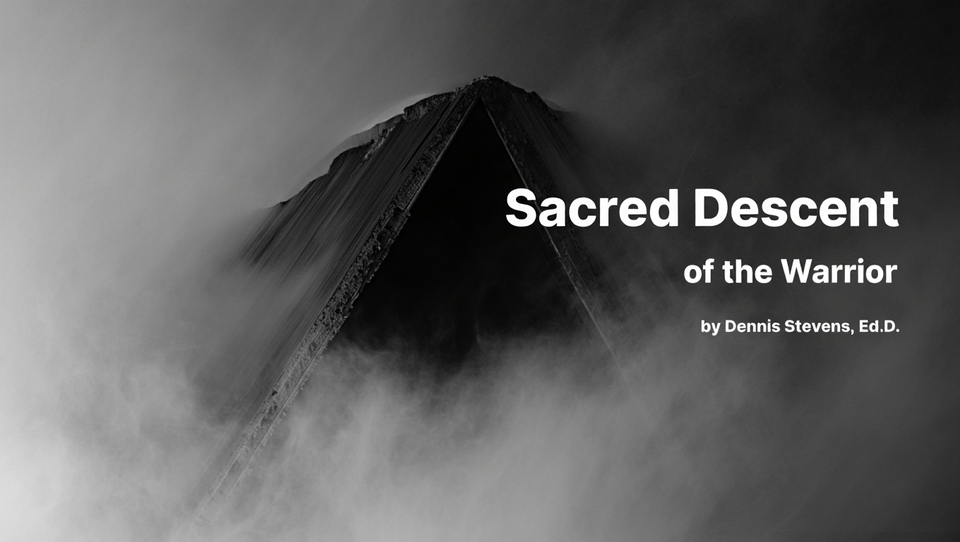The Cross-Domain Imperative to Embrace Polymathy: Venture Capital in an AI-Driven World
We are witnessing an epistemic crisis in the venture capital landscape, highlighting the limitations of traditional domain expertise in an…

We are witnessing an epistemic crisis in the venture capital landscape, highlighting the limitations of traditional domain expertise in an AI-driven environment.
Consider the profiles of five notable venture capitalists:
Profile 1: The Bio-Tech Innovator
This investor operates at the intersection of technology and biology, successfully backing companies that leverage advancements in synthetic biology. Their portfolio is a testament to their ability to identify and nurture groundbreaking ideas in their field. However, their focus on biotech sometimes leads them to overlook significant developments in artificial intelligence. They often assert that their expertise lies in life sciences, inadvertently closing the door on AI innovations that could reshape their industry.
Profile 2: The Data-Driven Researcher
A respected leader in global health, this individual applies data analysis to tackle complex health challenges. They have a deep understanding of the systems they study, yet their confidence in established research frameworks can limit their vision. While they excel at deriving insights from data, they may dismiss opportunities that don’t fit neatly within their existing paradigms, potentially missing out on unconventional yet impactful innovations.
Profile 3: The Experienced Technology Investor
This seasoned investor has guided numerous startups to successful exits, drawing from a wealth of experience to identify promising ventures. Their ability to recognize patterns has served them well, but it can also restrict their perspective. When presented with ideas that diverge from historical success models, they may react skeptically. Their reliance on familiar templates might hinder their capacity to embrace fresh approaches that could lead to the next wave of innovation.
Profile 4: The Transformative Co-Founder
This co-founder is passionate about supporting visionary entrepreneurs and developing innovative tech solutions. While they are committed to fostering transformative businesses, their depth of knowledge can sometimes create a narrow focus. When faced with concepts outside their primary expertise, they may struggle to appreciate their potential value, preferring to invest in areas they know well. This hesitation can prevent them from recognizing opportunities that exist beyond their immediate field.
Profile 5: The Vision-Driven Investor
Affiliated with a leading venture capital firm, this investor is keen on finding founders with a strong drive to change their industries. They value passion and commitment as essential traits for success. However, this emphasis on motivation can lead them to overlook innovations that don’t conform to their established criteria. They might unintentionally dismiss groundbreaking ideas that require a broader market understanding, limiting their ability to identify the next transformative trend.
These profiles reveal a common theme: while each venture capitalist has cultivated deep expertise in their respective fields, this same expertise can sometimes hinder their ability to recognize transformative innovations outside their immediate focus.
The empty space often found in rejection letters—phrases like “While we’re deep in the [specific domain], the [specific angle] here is outside our expertise”—does not merely reflect a knowledge gap. Instead, it underscores the venture capital community's collective epistemic blind spots.
In a rapidly evolving landscape shaped by artificial intelligence, the traditional boundaries of knowledge are increasingly fluid. AI enables the synthesis of ideas across previously siloed disciplines, opening doors to innovations that challenge established paradigms.
While venture capitalists cannot be experts in every emerging field, the potential of AI to create new possibilities demands a shift in perspective. Instead of viewing unfamiliar ideas as outside their expertise, they could see them as opportunities for collaboration and growth. By recognizing the limitations of their own knowledge and embracing a more integrative approach, venture capitalists can better navigate the complexities of an AI-driven world, ultimately leading to more impactful investments.
Rethinking Knowledge Creation at the Institutional Level
As we navigate this landscape, universities must also rethink their approach to knowledge creation. Traditionally, institutions have emphasized specialization, but a broader approach is essential in today’s rapidly evolving world. Polymathic thinkers — those who excel across multiple fields — are increasingly vital to cross-disciplinary research and innovation.
Rethinking “Intellectual Promiscuity”
The critique of “intellectual promiscuity” often suggests a lack of depth. However, this perspective overlooks the power of polymathy — where depth and breadth coexist, fostering diverse intersections of knowledge. Institutions prioritizing interdisciplinary research can harness the strength of polymaths who bring fresh, integrative approaches to problem-solving. Studies show that collaboration across disciplines drives innovation precisely because it draws from multiple perspectives.
The Institutional Role in Cross-Disciplinary Innovation
Universities are uniquely positioned to drive innovation through cross-disciplinary research. The most pressing global challenges — sustainability, healthcare, and technology — demand insights from various fields working together. Institutions with robust cross-disciplinary programs, like Stanford, MIT, and Oxford, are producing impactful solutions by enabling their faculties to collaborate and generate transformative knowledge.
A Historic Moment: AI’s Disruption of Knowledge Creation
We are experiencing a profound transformation in how knowledge is organized, understood, and produced, reminiscent of Cervantes’ era when Don Quixote was written. During Cervantes’ time, the invention of secular time marked a pivotal shift, enabling individuals to step outside the Church’s authority and explore new ways of organizing thought, work, and knowledge.
Today, artificial intelligence is playing a similarly disruptive role. Just as secular time disrupted ecclesiastical control over knowledge, AI is reshaping knowledge creation by transcending traditional academic boundaries. AI’s ability to analyze vast datasets, simulate complex systems, and automate tasks across disciplines opens new pathways for knowledge to emerge.
Universities that adapt to AI’s cross-disciplinary nature can unlock groundbreaking research opportunities, integrating AI into diverse fields — from biology to literature, and engineering to the arts. By harnessing the power of AI, these institutions can foster new forms of collaboration and innovation that were previously constrained by rigid disciplinary silos.
This moment, like Cervantes’ time, invites a fundamental rethinking of how we understand and organize knowledge. Just as the advent of secular time led to a shift in power away from ecclesiastical control, AI is reshaping the very foundations of how knowledge is created, shared, and leveraged to address the complex challenges of our time.
Strategic Opportunities for Cross-Disciplinary Research
To lead in AI-driven innovation, universities must create frameworks facilitating cross-disciplinary collaboration:
- Interdisciplinary Research Centers: Establish centers that break down silos, promoting collaboration across departments and disciplines.
- AI as a Research Tool: Leverage AI to advance research across fields, generating insights that transcend traditional boundaries.
- Flexible Funding Models: Encourage cross-disciplinary projects by providing funding mechanisms prioritizing collaborative initiatives.
- VC Teaming: Foster collaborative funding models that leverage AI, enabling venture capitalists from diverse domains to work with founders spearheading cross-disciplinary projects.
Embracing the Cross-Domain Imperative
We stand at a historical turning point, like the shift from ecclesiastical to secular knowledge. AI is reshaping how institutions generate knowledge itself. Universities must seize this moment by fostering environments where cross-disciplinary research and knowledge creation can thrive. Polymathy is no longer peripheral; it’s essential for innovation in an AI-driven world.
By rethinking strategic frameworks and encouraging collaboration, institutions can harness AI's full potential to unlock the next wave of transformative breakthroughs. That blank space in rejection letters is not a deficit but an invitation to rethink our approach to knowledge and innovation. It’s time to embrace the cross-domain imperative and lead the way in this profound transformation.



